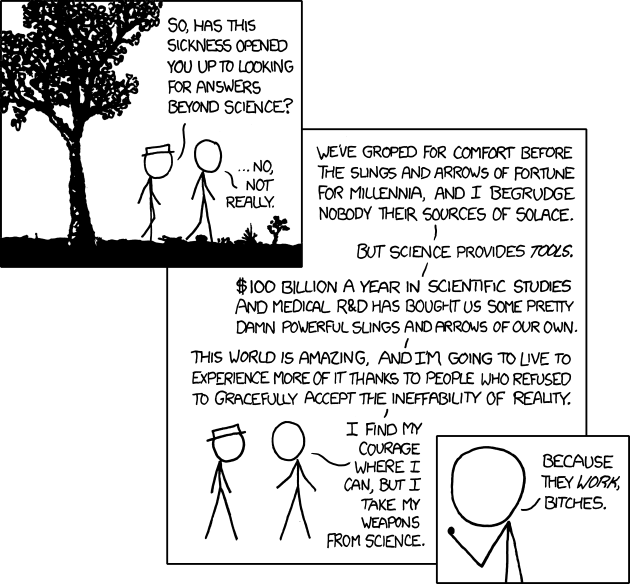Oh.. so that's why the Church publically shamed Galileo and forced him not to publish his work on Heliocentrism... they cared about truth SO MUCH that they couldn't allow him to rely on his blind faith to corrupt the masses... hey wait a second...Therarchos said:Actually the process you describe is basically the same that has created most of the present understanding of christianity.Darken12 said:That's the difference between science and religion. Science questions the things it takes on faith constantly, and keeps questioning and testing over and over again. In religion, questioning your faith is a big no-no.
There is a reason why most "scientist" of the enlightenment was theologians. It was the only higher education that existed in Europe at the time and the people who became great theologians at the time was the people who could look at something (nature/scripture) and say if A is.. and B is... then there must be a C.
There is a huge difference between blind faith in something and well thought faith in something and you find that on both sides of the argument.
Most religious people who don't put their heads up their asses and go lalalalalala see science as another form of contact with the divine not something to work against. That is why they get annoyed whenever they are told that they are wrong because science says so. (I am well aware that that is not necessarily what science says but it is often used as such) Especially when the arguments that are used to use science like that is flawed.
That's why everyone demonizes Charles Darwin (who was a Theology major)...
The church only allows science to proceed unscathed if it doesn't attempt to usurp the churches established opinion on something...

